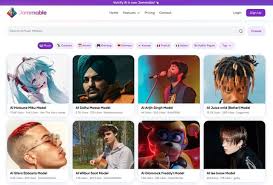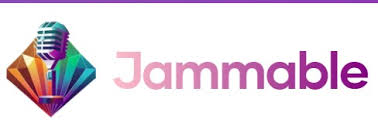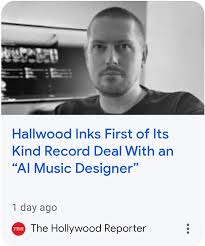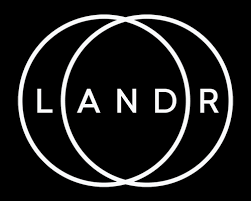The surge of AI-generated music is impossible to ignore. One of the most talked-about platforms in this space is Suno AI—a tool that allows users to create full songs simply by typing a prompt. But with its growing popularity comes an important question: What is Suno AI and is it safe to use?
Whether you're a content creator, musician, educator, or just curious about AI technology, understanding how Suno AI works and what it means for data security, copyright, and ethical use is critical. This article will explore the platform’s functionality, safety profile, potential risks, and real-world use cases—all grounded in accurate information and the latest developments.
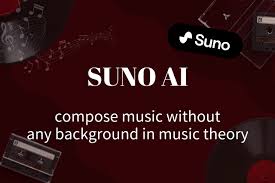
What Exactly Is Suno AI?
Suno AI is a text-to-song platform that uses generative artificial intelligence to produce music with vocals, lyrics, and instrumentation. You provide a short text description—like “a funky disco song about robots in love”—and the tool creates a complete, high-quality audio track based on your input.
Unlike traditional beat-making tools or instrumental AI apps, Suno goes a step further by generating:
Full-length vocal songs
Original lyrics
Structured arrangements (verse, chorus, bridge)
Realistic voice models (male, female, and genre-specific tones)
Suno officially launched in late 2023 and quickly gained traction, thanks to its integration with Microsoft Copilot, its user-friendly web interface, and its ability to produce surprisingly human-sounding music in under a minute.
How Does Suno AI Work?
The core of Suno’s technology lies in machine learning and large language/audio models. Here’s a simplified breakdown of the process:
User Input: You enter a prompt describing the type of song you want (e.g., style, mood, theme).
Language Analysis: The system interprets your request using natural language processing (NLP).
Music Generation: It pulls from a vast dataset to generate lyrics, melodies, harmonies, and rhythm.
Vocal Synthesis: Suno renders vocals with artificial voices trained to emulate various singing styles.
Final Output: The result is a complete audio track, which can be streamed, downloaded, or shared.
You don’t need a DAW (Digital Audio Workstation), microphone, or any music theory knowledge to use it—Suno handles everything behind the scenes.
Why Is Suno AI So Popular?
There are several reasons why Suno AI has caught the attention of the global music and tech communities:
Ease of use: No music background is required.
Speed: Songs are created in under 60 seconds.
Genre flexibility: Works with pop, hip-hop, EDM, folk, rock, and experimental styles.
Free tier: Offers 50+ song generations daily for free users.
Community engagement: Songs made with Suno frequently go viral on TikTok, Reddit, and YouTube.
Is Suno AI Safe?
When evaluating whether Suno AI is safe, we need to look at multiple layers: data privacy, security practices, legal status, and ethical concerns.
1. Data Privacy and Security
Suno uses industry-standard encryption and authentication systems. According to its published policy and trust page, Suno complies with key data protection standards, including:
SOC 2
PCI-DSS
GDPR
ISO 27001
HIPAA-ready architecture
Users log in via Google or Discord, and data like email and usage logs are collected for service improvement. There’s no evidence of a data breach to date, and users can request account deletion or data removal, complying with privacy laws.
Bottom line: Suno AI’s security protocols are modern and robust, with no public reports of misuse or leaks.
2. Copyright and Legal Risks
This is where things get more complicated.
Training Data Transparency: Suno does not publicly disclose its training dataset. This has raised concerns among rights holders who fear their copyrighted works may have been used without consent.
Lawsuits: In April 2024, Suno (along with its competitor Udio) was sued by major music labels, including Universal Music Group and Sony, for allegedly training on copyrighted recordings. The lawsuits seek damages and regulation on how AI-generated music can be used.
Commercial Use Limitations: The free version of Suno does not grant commercial rights. If you're using AI music in monetized content (ads, products, streaming platforms), you need a commercial license or risk copyright conflict.
Important Tip: If you're planning to use Suno for YouTube videos, podcasts, or advertising, upgrade to a commercial plan or verify licensing rights directly with the platform.
3. Ethical Considerations
Musicians, songwriters, and vocalists have expressed concern over AI-generated music, particularly regarding:
Job displacement for composers and session artists
Voice cloning without consent (though Suno currently uses proprietary, non-celebrity voice models)
Artistic authenticity—some critics argue that songs made without human emotion or story lack soul
While Suno claims to embed inaudible watermarks in its audio for traceability, questions remain about the cultural and creative implications of mass-produced AI music.
Real-World Applications of Suno AI
Despite the controversy, creators and businesses are finding unique ways to use Suno:
Content creators use it to generate jingles, intros, and background music for videos.
Teachers and students employ Suno for educational music projects.
Brands test it for campaign-specific jingles and soundtracks.
Indie developers use it for placeholder music in games or prototypes.
For non-commercial or experimental use, Suno is a game-changing creative tool. But anyone using it for profit should proceed with legal caution.
Frequently Asked Questions
Is Suno AI free to use?
Yes, it offers a generous free tier—50+ songs daily. A paid plan is available for advanced features and commercial use.
Can I use Suno AI music in YouTube videos?
Yes, but only non-monetized videos unless you have a commercial license from Suno.
Does Suno AI steal from real artists?
There’s no clear answer. While Suno says it uses fair-use data, ongoing lawsuits will determine if any copyrights were infringed.
Is Suno available as an app?
Yes. As of mid-2024, Suno has launched mobile apps for iOS and Android and is also available via Microsoft Copilot.
Can Suno generate in different languages?
Yes. While its best performance is in English, it supports multilingual prompts, including Spanish, Japanese, and French to some extent.
Final Thoughts: Should You Trust Suno AI?
If you're simply experimenting with song creation or exploring creative possibilities, Suno AI is a safe, user-friendly, and inspiring tool. But if you’re aiming for serious production, public release, or monetization, you need to keep an eye on:
Licensing clarity
Evolving copyright regulations
Platform terms of service
AI music is still legally and ethically unsettled territory. Use Suno with curiosity, but also with caution.
Learn more about AI MUSIC


